Indonesia and India launched negotiations for a Comprehensive Economic Cooperation Agreement at the first Indonesia-India Biennial Trade Ministers’ Forum held earlier this month. In an email interview, David Brewster, a visiting fellow at the Australian National University’s Strategic and Defense Studies Center, discussed India-Indonesia relations. WPR: What is the recent history of India-Indonesia relations? David Brewster: Political and economic ties between India and Indonesia have been quite thin for most of their modern history. Although their leaders shared many ideals at independence, the two countries later became rivals in the Non-Aligned Movement and developed quite different strategic orientations. However, for […]
India Archive
Free Newsletter
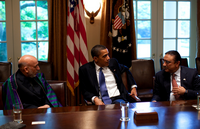
With a variety of major political and military events unfolding across Asia and the Middle East, many countries are re-examining longstanding formal and informal partnerships and alliances. As a result, the coming months and years will bring about a recasting of important strategic links, some of which have been part of the global landscape for decades. The combined effect of America’s war in Afghanistan, its fight against Muslim extremists inside Pakistan and the ongoing Arab uprisings are prompting a fundamental rethinking of some of the bilateral and multilateral ties that have served as the bedrock of international affairs in recent […]
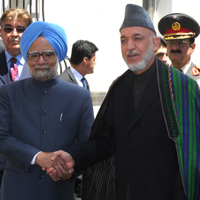
The strategic partnership agreement signed by Afghan President Hamid Karzai and Indian Prime Minister Manmohan Singh in New Delhi last week made front-page news across the region and beyond. The attention it attracted is hardly surprising: The agreement, the first of its kind for Afghanistan, includes the provision of training for Afghanistan’s military and police, the establishment of social and cultural exchanges, and measures to enhance economic ties. It also comes in the context of increasing tensions between Afghanistan and Pakistan. A day prior to the announcement, Karzai harshly criticized Islamabad for not supporting ongoing peace and stability operations in […]
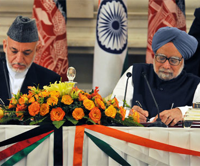
In a move that signals India’s resolve to stay the course in Afghanistan after NATO troops withdraw in 2014, Indian Prime Minister Manmohan Singh signed a Strategic Partnership Agreement (SPA) with visiting Afghan President Hamid Karzai in New Delhi last week. The SPA includes a major security component, with India “agreeing to assist, as mutually determined, in the training, equipping and capacity-building programs for Afghan National Security Forces.” That this was the first security pact of any kind signed by India on the subcontinent was not lost on Islamabad, with former Pakistani President Pervez Musharraf immediately dubbing the pact “anti-Pakistan.” […]
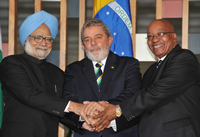
The decision this week by Russia and China to veto a U.N. Security Council resolution condemning the government of Syrian President Bashar al-Assad for its use of violence against its domestic opponents has attracted much attention — and opprobrium. What has generated less discussion is the fact that the three states of the IBSA bloc — India, Brazil and South Africa — abstained from the vote. But their unwillingness to support the resolution has clear implications both for the future of the “responsibility to protect” doctrine as well as for America’s own relationships with the rising democracies of the South. […]
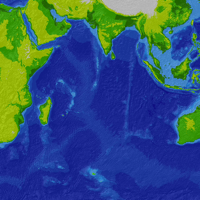
While much has been written about China’s port development projects in the Indian Ocean region, it is actually Beijing’s undersea activities in the area that may prove to be the greater source of consternation for India and its navy. In July, the China Ocean Mineral Resources Research and Development Association announced that it had secured approval from the International Seabed Authority (ISA) to explore the southwestern Indian Ocean ridge for polymetallic sulphide nodules. The move was not received well in Indian policymaking circles, which believe that it not only reflects Beijing’s intentions to extract resources from the Indian Ocean region […]
